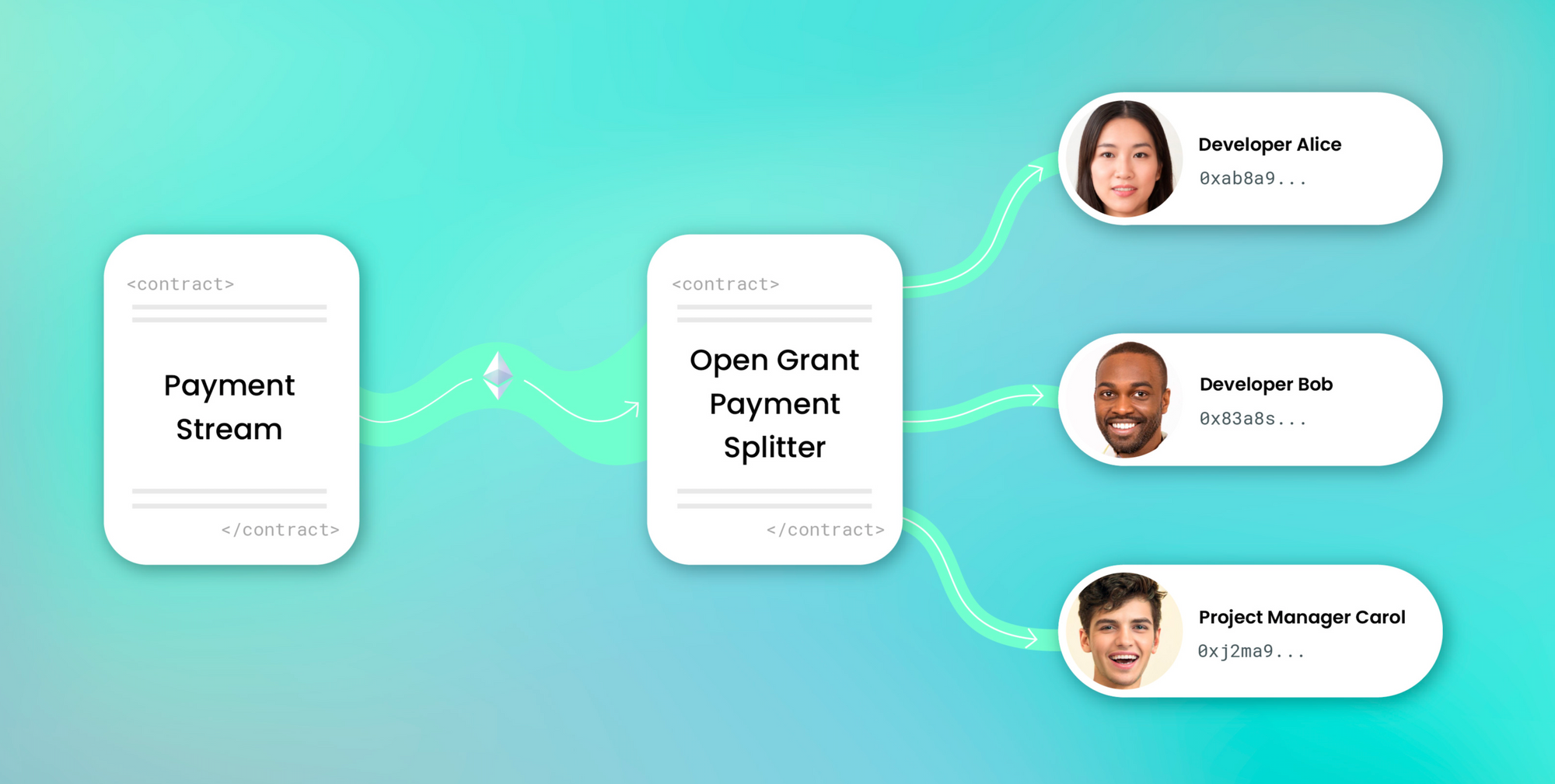Historically, it has been difficult to create long-term incentives for open source developers working on Ethereum’s roadmap. One of the problems with straight ETH donations given to these developers is they can be sold immediately for dollars, which removes long-term incentives.
ETH options and time-locked contracts would be ideal for long-term incentivization, but they’re impractical because they fall under the swap definition of the Commodity Exchange Act in the United States, which entails a number of legal concerns.
Cancellable ETH payment streams have no such legal obstacles and can be implemented now. Streams would act as long-term incentives for developers working on public goods because they would have confidence in receiving future ETH payments as long as they were doing good work.
When a payment stream is pointed at an open grant (payment splitter contract), a set of Ethereum developers can be incentivized for the long run. This combination allows the community to massively scale up incentive programs that cover large swaths of developers. With the release of opengrants.com, it’s easier than ever to do this.

Today, I’ve created a 3600 ETH payment stream that pays out over three years and points to an open grant titled Eth2 Development (Dec 2020). This payment splitter contract covers eth2 client teams and researchers and was crafted with input from knowledgeable community members. About two thirds of the distribution is allocated to client teams, and the remaining third is spread across individual researchers.
The allocations for each entity were roughly determined by estimating that entity’s impact and quality of work minus level of funding. Teku, for instance, was omitted because the project is well funded by Consensys. The researcher addresses were collected by Trenton Van Epps, and many are currently pseudonymous. Opengrants.com reads 3Box profiles, so if any of the researchers wish to identify themselves in the interest of transparency, they can quickly do so by creating a 3Box profile. I recommend that the researchers identify themselves to build trust and easily enable the community to include them in other grants.
I’m intending to reorient my payment stream somewhat regularly to reflect changing conditions for client teams and researchers. Because the grants on opengrants.com are immutable (can’t be edited after they’re deployed) by design, I’ll have to create new grants in order to update distributions.
If you’d like to contribute to incentivizing the core developers working on eth2, kindly point a payment stream at Eth2 Development (Dec 2020). Other streaming contracts that directly send ETH to the contract will work just fine.
If you have your own ideas for allocating long-term incentives to developers working on Ethereum, go ahead and create your own open grant or fork mine and modify it.
Huge thanks to Noah Marconi, Ameen Soleimani, Jaclyn Lenee, Dan Ramakrishnan, Ven Gist, Trenton Van Epps and Raid Guild for their help with this project.

